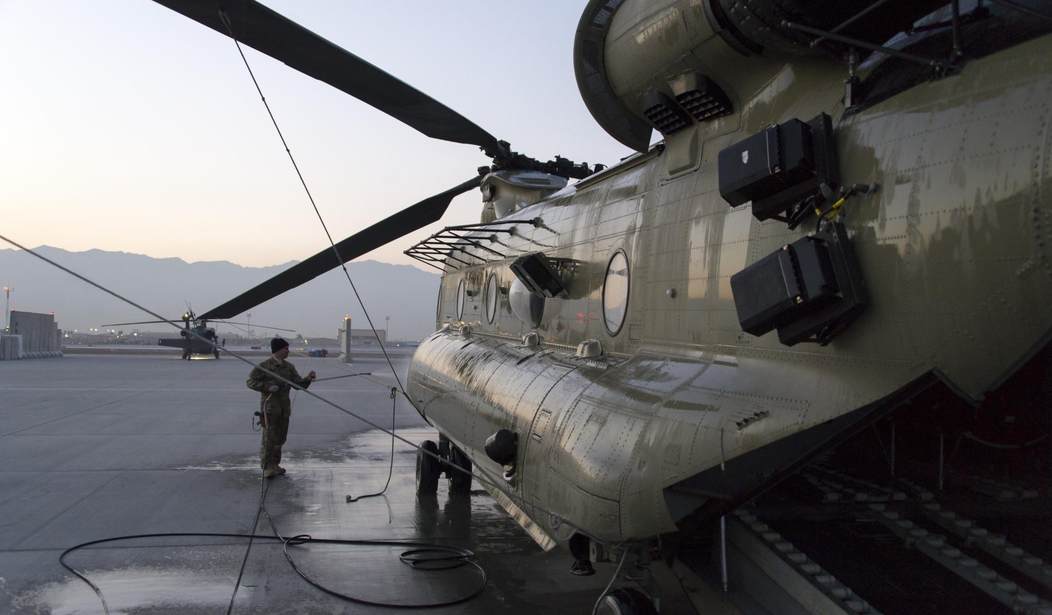WASHINGTON – Gen. David Petraeus, former CIA director and former commander of U.S. Central Command, said the situation in Afghanistan is “deteriorating” and encouraged the next administration to make an “enduring commitment” to security in the country.
“The situation as we describe is fraught and it is concerning, and the bottom line is we believe the next administration should make an enduring commitment to Afghanistan and our partners there — that is the real bottom line and, if you will, the headline — that we should not have to go through the annual reviews to see where you are and how you are going to draw down or what have you, that we should use the assets we have there as effectively as we possibly can to support our Afghan security force counterparts,” Petraeus said during a discussion on Afghanistan security last week at the Brookings Institution.
“As many of you know, our air power was restricted for quite some time. We think it warrants further examination to determine how we can indeed help individuals for whom we provided close air support when we were fighting shoulder to shoulder with them and then we did not do that for some period of time until more recently. Those are the kinds of initiatives that should be pursued,” he added.
Petraeus said U.S. involvement within Afghanistan, which began after the Sept. 11, 2001, attacks and surged during President Obama’s first term, is not a blank check and has to be a commitment from both sides.
“There are indeed causes for concern in the governance arena and the habitual concern of corruption in governance and so forth. Indeed, again, the key is an enduring commitment to a country in which we have these two very important national interests and where we very much want to see those interests continue to be safeguarded and preserved,” he said.
Petraeus reminded the audience that the Bush administration initially invaded Afghanistan to “ensure Afghanistan is never again a sanctuary for al-Qaeda or other transnational extremists the way it was when the 9/11 attacks were planned there.”
He added that the initial training of the 9/11 attackers was conducted there.
“We have indeed accomplished that mission to date so that really is the core. When I was privileged to be the commander of the international security assistance force and U.S. forces there, commander of the Central Command, that was the most important task in mind,” he said. “We very much wanted to help Afghanistan in a host of other ways, but I would also note we had very realistic assessments of what we thought we could achieve and there was never any kind of dream of turning Afghanistan into Switzerland in 10 years or less.”
Petraeus said Afghanistan is “a hugely important platform for our regional counterterrorism operations.”
“It is publicly known the raid to get Osama bin Laden was launched from there. It is publicly known that various other activities are conducted from there and that platform remains very important to us,” he said.
“As an aside, we’re welcome in Afghanistan. The Afghans and their government want us to be there and we have indeed improved life for Afghans in a host of different ways, whether it is infrastructure, education, various elements of the economy, and so forth,” he added.
He said the progress in the country since the start of the war has been “quite substantial” but “the situation has deteriorated in recent years.” He explained that members of the Afghan security forces are “sadly dying for their country in quite considerable numbers, unsustainable numbers — that does indeed give us one of the many reasons for concern there.”
Overall, Petraeus said the U.S. did halt the spread of al-Qaeda during the surge and accelerated the development of the Afghan security forces. However, al-Qaeda and other extremist groups are now trying to regain control of areas.
“Literally in the last 24 hours, we have seen reports of the renewed fighting in Kunduz and I have been assured by some individuals on the ground at quite a high level that there are U.S. special forces on the ground supporting Afghan commandos, and they believe they have that under control,” he said.
When it comes to fighting Islamic extremism in Afghanistan, Iraq and Syria, Petraeus said the U.S. has to do a better job countering the ideology. He said that Central Command used to have alternate voices online attempting to counter the narrative from extremists.
He predicted that the U.S. would eventually catch Abu Bakr al-Baghdadi, leader of ISIS, but said the challenge of putting a “stake through the heart of the ideologies” will remain.
“Now you have the new State Department initiative, which I applaud, but if you look at the resources provided to it, it just can’t have that significant of an effect knowing how much this kind of thing costs and knowing what we achieved when we had substantial resources during the various surges,” he said.
“What is hopeful now is initiatives being pursued by the Internet service providers and social media platforms and that I think is actually very, very useful,” he added.
Petraeus cited Jared Cohen’s work as the founder and president of Jigsaw.
“So if you search for say ISIS or Islamic extremism or you name it, those kinds of search terms, what you get back is not what you would have normally gotten back in the past, you also get back stuff that counters that kind of activity and that kind of influence,” he said. “It’s basically alternative voices.”









Join the conversation as a VIP Member